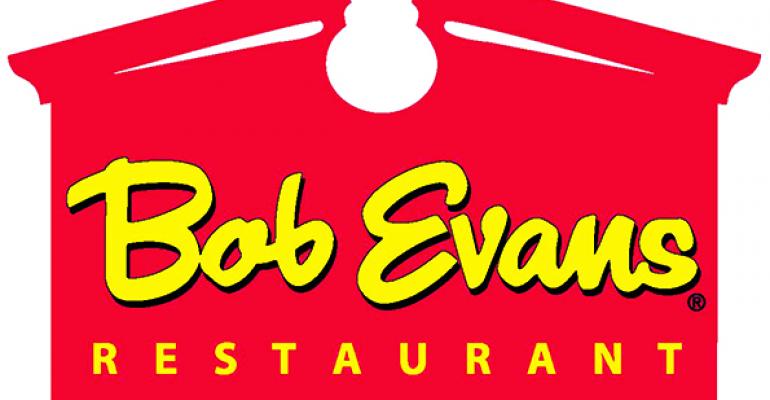Bob Evans Farms Inc. has chosen to stick with the packaged foods business. The New Albany, Ohio-based company on Tuesday said that it has a deal to sell Bob Evans Restaurants to Golden Gate Capital for $565 million.
The deal comes as the 523-unit family dining chain has struggled and shareholders have pressured the company to spin off its profitable packaged foods division, BEF Foods.
Instead of spinning it off, Bob Evans is selling the restaurants and committing to the packaged foods division, which sells sausage and side dishes at grocery stores. Along with the sale of the restaurants, BEF Foods is acquiring Pineland Farms Potato Company for $115 million.
“It’s a great, three-team trade,” Bob Evans Restaurants president John Fisher said in an interview Tuesday.
In a statement, CEO Saed Mohseni said that the transactions “are a major step in our strategic transformation that we believe will continue Bob Evans’ history of success.” And he said that, as a private company, the restaurant division will get the attention it needs to succeed.
“We believe this focus will result in higher returns for our shareholders and, as a more focused private business, Bob Evans Restaurants will be better able to deliver on its brand promise of providing quality food and hospitality to every guest, every meal,” he said.
Mike Townsley, president of BEF Foods, will take over as CEO of Bob Evans Farms once the restaurants are sold.
Mohseni will remain as CEO of the restaurant chain once the sale to Golden Gate goes through. The deal is expected to close in April. Bob Evans Restaurants’ executive team will remain in place to oversee the transition to Golden Gate Capital. That includes Bob Evans Restaurants president John Fisher.
“This partnership will provide Bob Evans Restaurants with the resources, knowledge and flexibility needed to drive our growth, while remaining true to the values of our founder, Bob Evans,” Mohseni said.
Bob Evans Restaurants has been struggling with weak same-store sales for some time, including a decline of 1.8 percent in the quarter ended Oct. 28.
Fisher said that the deal would enable the restaurant chain to be more focused. The sale “allows us to continue focusing on Bob Evans’ heritage and the restaurant business. And we gain the expertise of Golden Gate and the work they’ve done in the restaurant business.”
The company has been focused in recent months on improving service and updating the menu, while focusing more on its popular breakfast daypart. The company said the efforts have led to improving same-store sales and customer feedback.
Bob Evans’ new menu in September removed 20 items and made it easier to navigate. The goal was to make the business more efficient and improve service. “It’s simpler and more focused,” Fisher said “The servers love it. It’s easier for them to work with.”
As part of the deal, Golden Gate will pay $565 million and will assume working capital liabilities of $40 million to $50 million. The company expects net proceeds from the sale of $475 million to $485 million.
“The board of directors has consistently evaluated all options for creating shareholder value,” Bob Evans executive chairman Doug Benham said in a statement. “We believe these transactions are the best options for creating shareholder value and providing for the future success of these two great businesses.”
Golden Gate is no stranger to the restaurant business — in 2014, the San Francisco-based private-equity group agreed to pay $2.1 billion to acquire Red Lobster from Darden Restaurants Inc. It has bought and sold several restaurant chains over the years.
The private equity firm also owns California Pizza Kitchen and has and has $15 billion in capital under management.
The deal is likely to appease Sandell Asset Management, one of Bob Evans’ largest shareholders, who has been pushing for major changes, including a split of the restaurant and packaged foods division. While much of that focus has been on a potential spinoff of BEF Foods, in October Sandell recommended a potential sale of Bob Evans Restaurants as another option.
“It’s fair to say that over the course of the last three years the board has looked at many scenarios,” Fisher said. “The board was constantly looking at ways to improve shareholder value, and this is the result of some pretty diligent work by the board.”
Contact Jonathan Maze at [email protected]
Follow him on Twitter at @jonathanmaze




